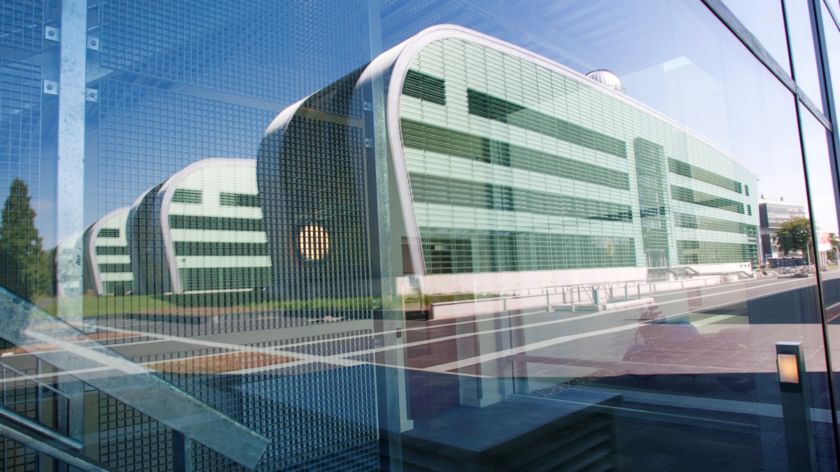-
 Het Huygensgebouw. Foto: Dick van Aalst
Het Huygensgebouw. Foto: Dick van Aalst
The Faculty of Science (FNWI) is working on plans for engineering courses. There will also be research groups focused specifically on technological developments. With this development, the university is following the example of other general universities.
The need for highly skilled engineers increases every year, also in the Nijmegen region. But students who want to work towards an academic engineering degree still need to divert to cities like Eindhoven or Wageningen. While it is possible to follow education in the natural sciences in the Huygens building, these studies are focused on fundamental knowledge, not technological development.
The Faculty of Science now wants to change this. At the moment, they are working on a plan to offer engineering courses in the near future. First on the list are Master’s degrees in the fields of biotechnology, physics, and neuroengineering.
Collaboration Maastricht
According to science faculty dean Lutgrade Buydens, the plans for a Crop Biotechnology master – focussing specifically on plants – are most concrete. For this master’s course, the faculty wants to collaborate with Maastricht University, that already has plans to start such a course on their Venlo campus. This course would be one of the first concrete results to come out of the collaboration covenant that the universities from Nijmegen and Limburg signed last year. The dean expects that the course will likely commence in 2024 at the earliest, due to all the governmental admissions procedures that will need to be followed.
According to Buydens, the master’s in applied physics is another obvious choice. It will be called ‘Instrumentation for big science.’ A great deal of physics research in Nijmegen already requires high-tech expertise, such as the magnet and laser lab HFML-FELIX. ‘But this also applies to the astronomy projects of Heino Falcke and the Radboud Radio Lab. Part of the knowledge is already there.’
Technical research groups
A direct consequence of the new courses would be the formation of technical research groups. After all, the dean explains, education and research go hand in hand in Nijmegen. According to her, that is also the most important reason for the new plans. ‘This will allow us to bridge the gap between fundamental and purely technical research groups in the Netherlands.’
Buydens: ‘Technology is already an important part of the research in some departments, but it is always used with the goal to answer fundamental questions. The task of the new groups will be to develop new technology.’
Thereby, the intent is for other groups to then profit from this. Buydens: ‘Take for example the HFML-FELIX. If you develop technology for measuring equipment on-site, that allows for better research into material properties. Then Nijmegen can distinguish itself even more using the unique facilities of the laser lab.’
‘Not for competitive reasons’
Nijmegen is not the first general university to start offering engineering courses. Since 2019, students of the Vrije Universiteit (VU) can study mechanical engineering, thanks to a collaboration with the University of Twente. However, Buydens stresses that the steps taken by Nijmegen are not for competitive reasons, although she does see similar developments elsewhere. ‘Competition is not a factor. We focus on our own strengths.’ According to the dean, the fact that other universities are also offering engineering courses only shows that the steps taken by Nijmegen are not as remarkable as they may appear at first sight.
‘The university will not be renamed to Nijmegen University of Technology.’
For now, the university will not be renamed to the Nijmegen University of Technology. But that the technical faculty will be renamed at a certain point is to be expected. Names like Faculty of Science & Engineering are already on the grapevine. Buydens, however, firmly states that no decisions have been made yet. ‘But I think that if the board gives us the green light, we will have to propagate the transition publicly in one way or the other. But we do still need to come up with a solution regarding a possible new name – maybe we should hold a contest.’
But that’s still a few steps ahead. The faculty hopes to present detailed plans to the executive board before the new year.



